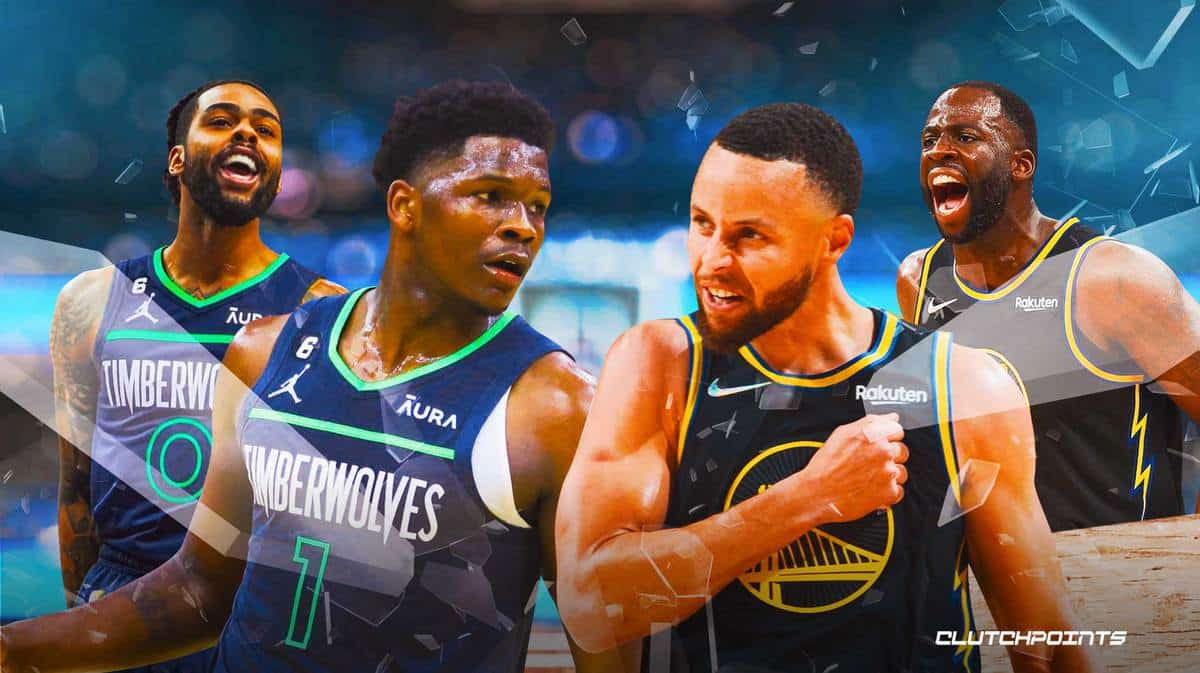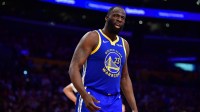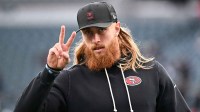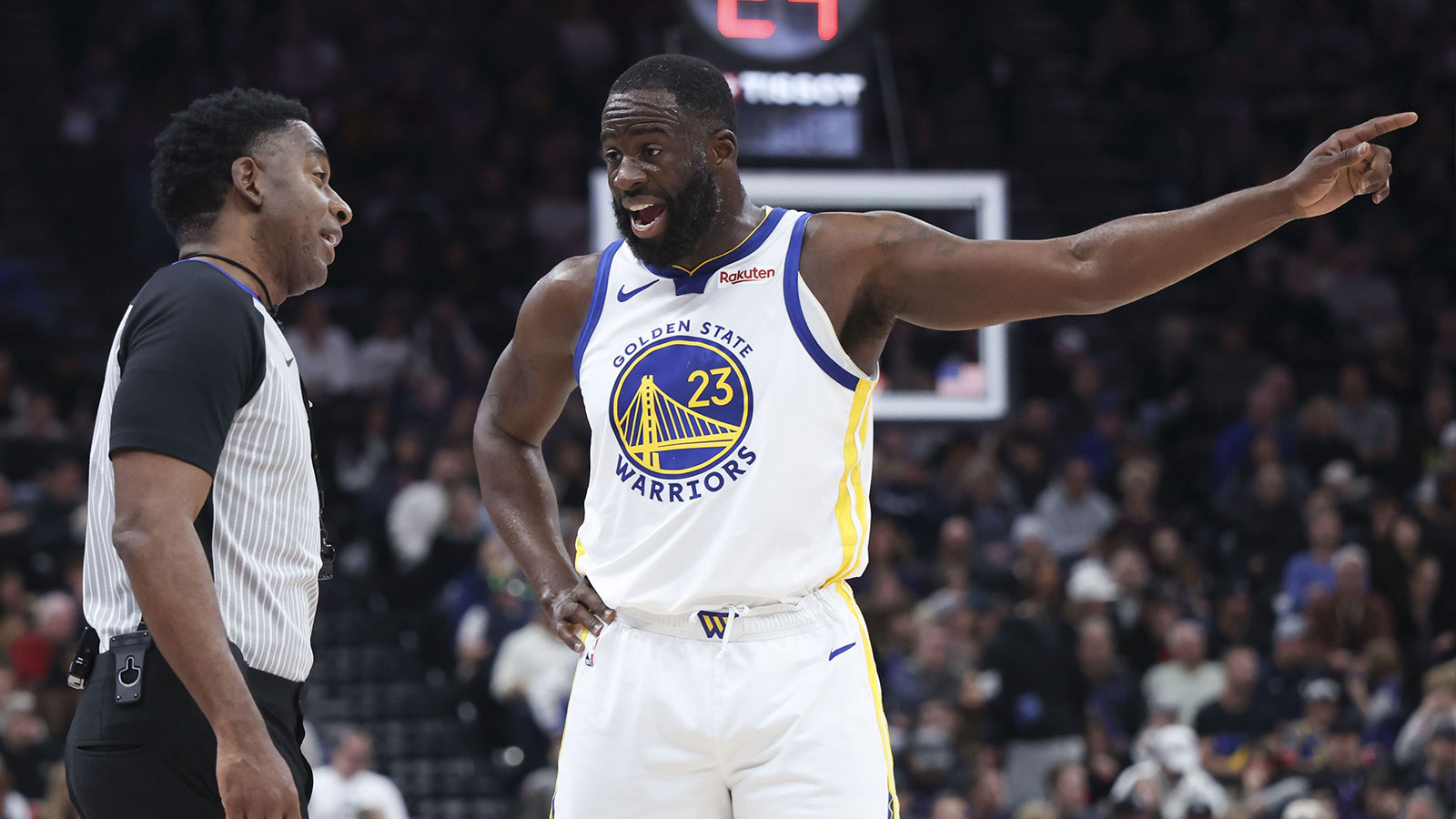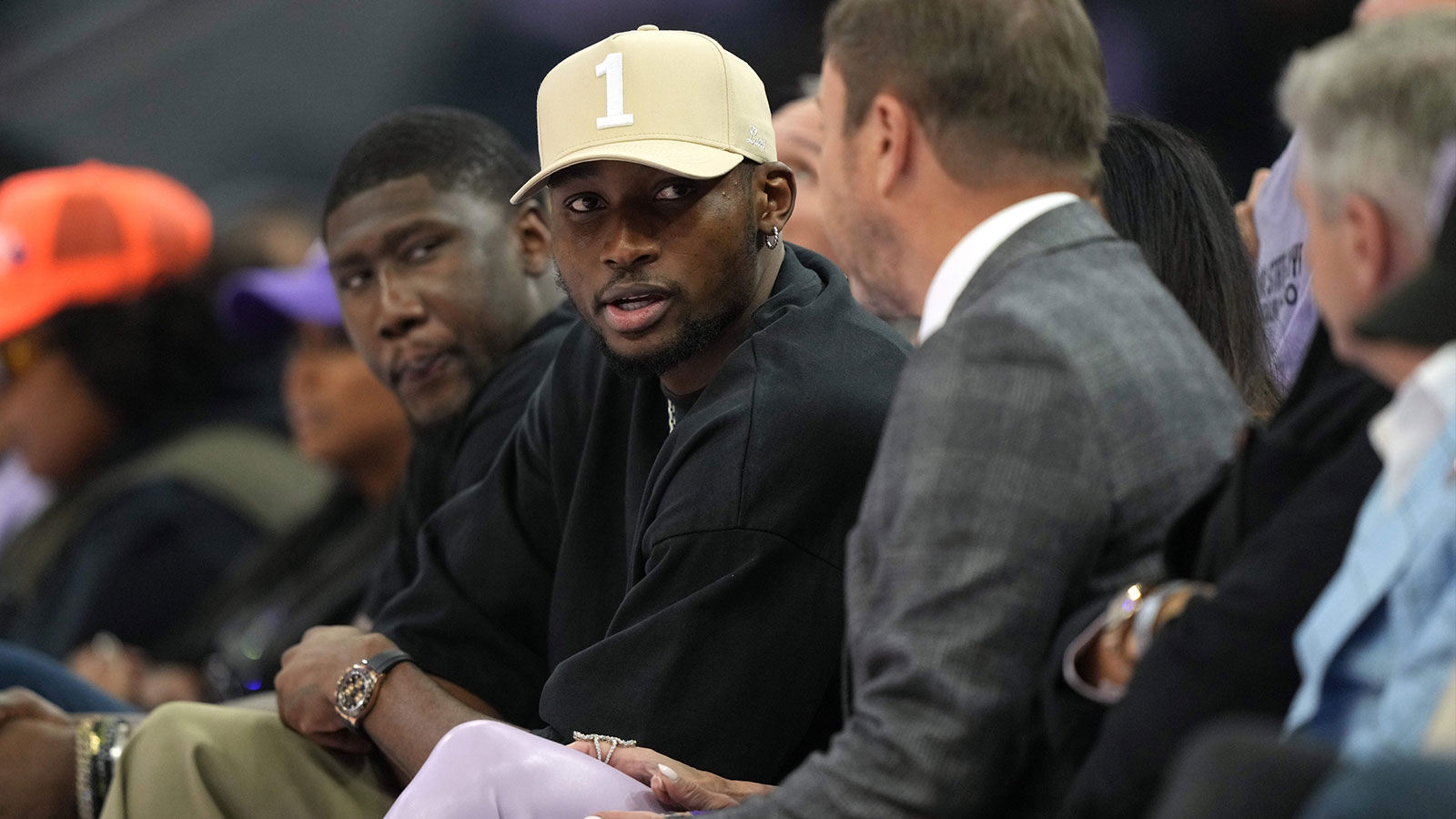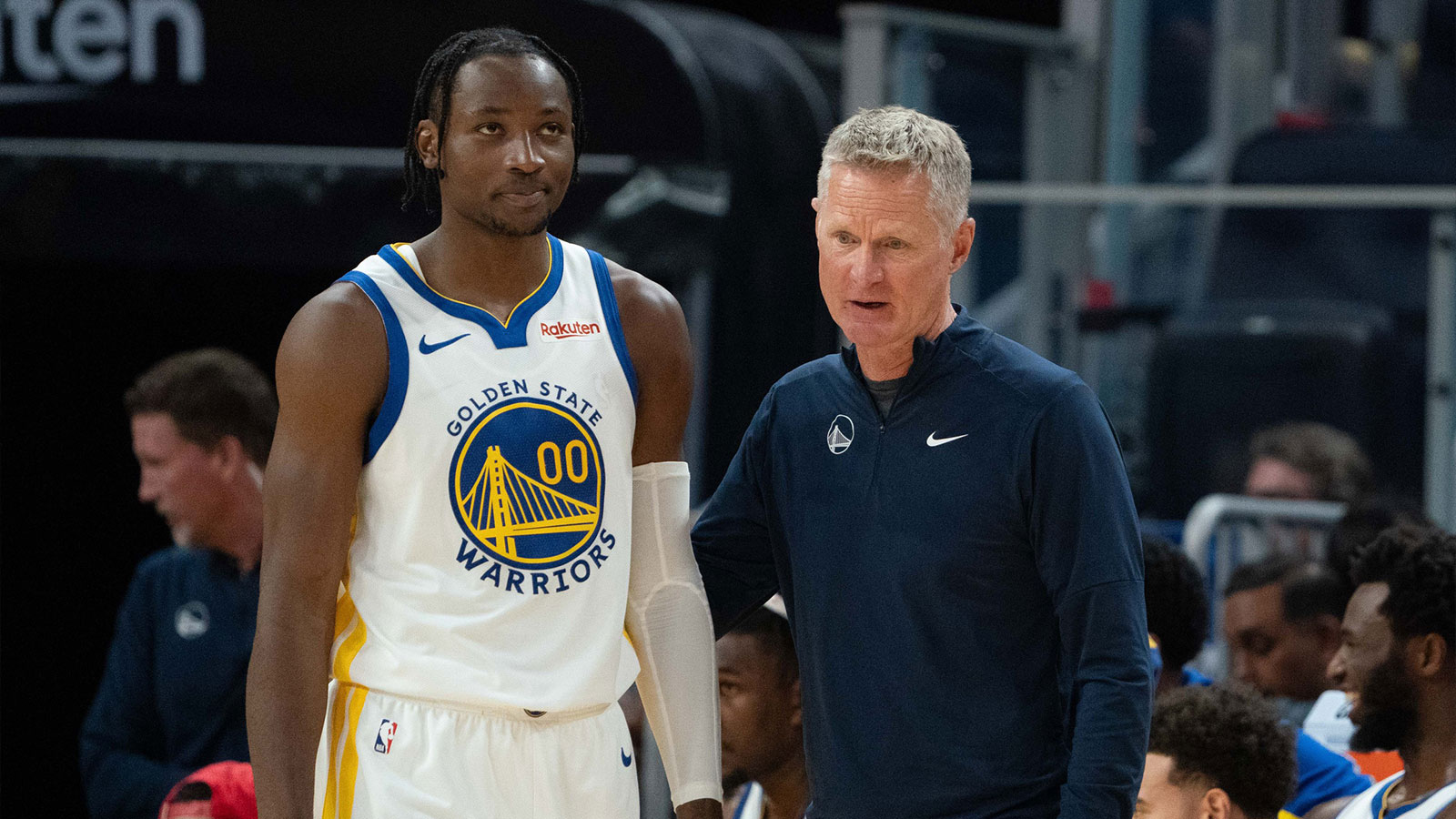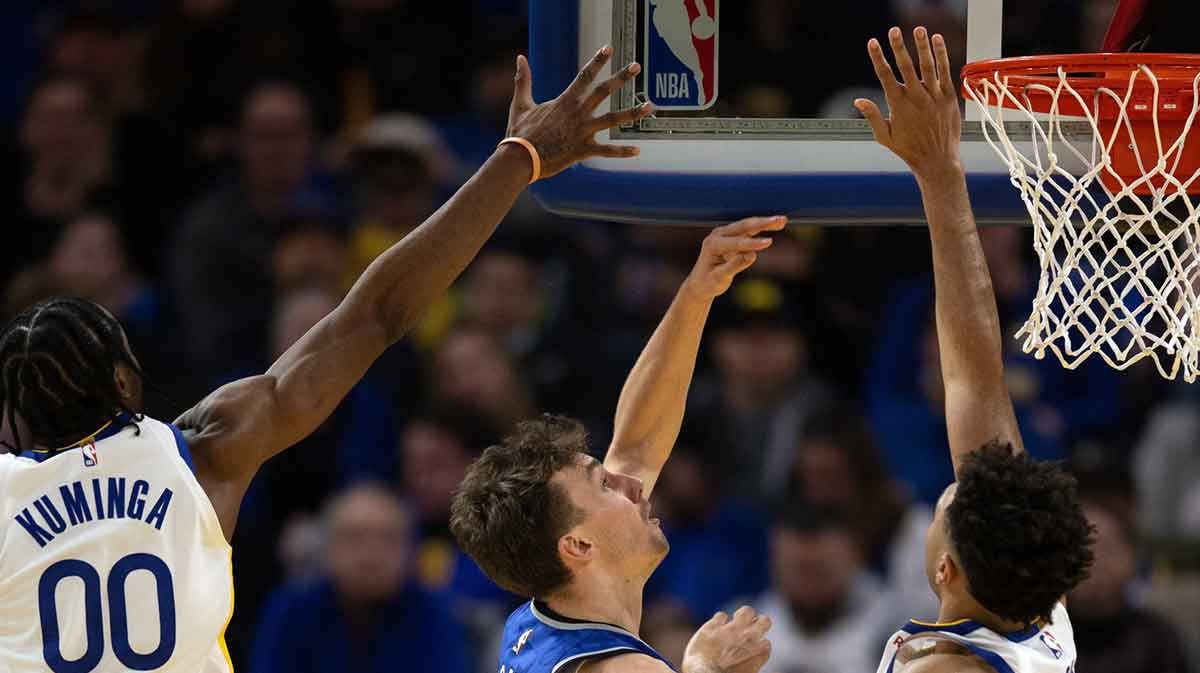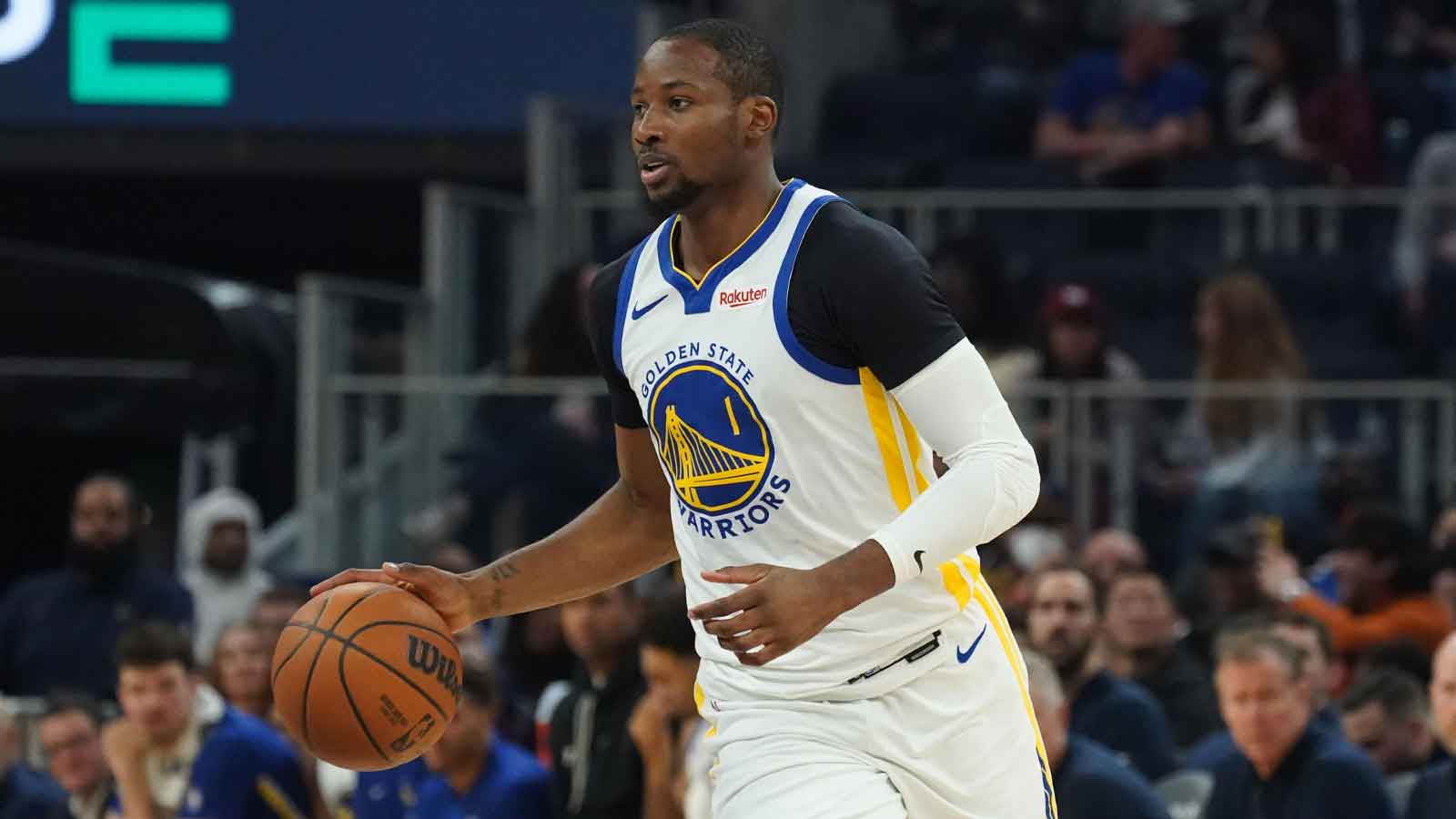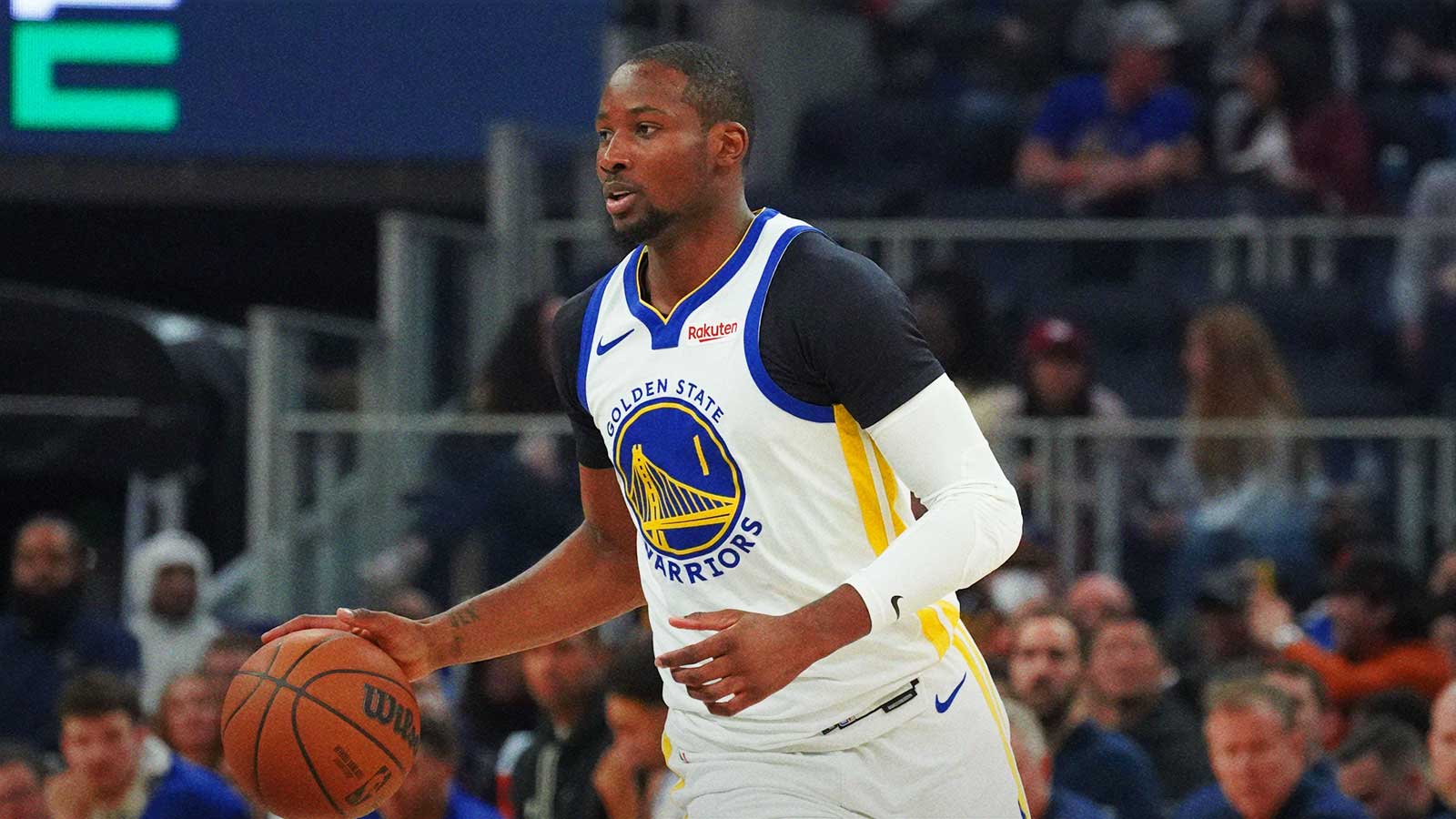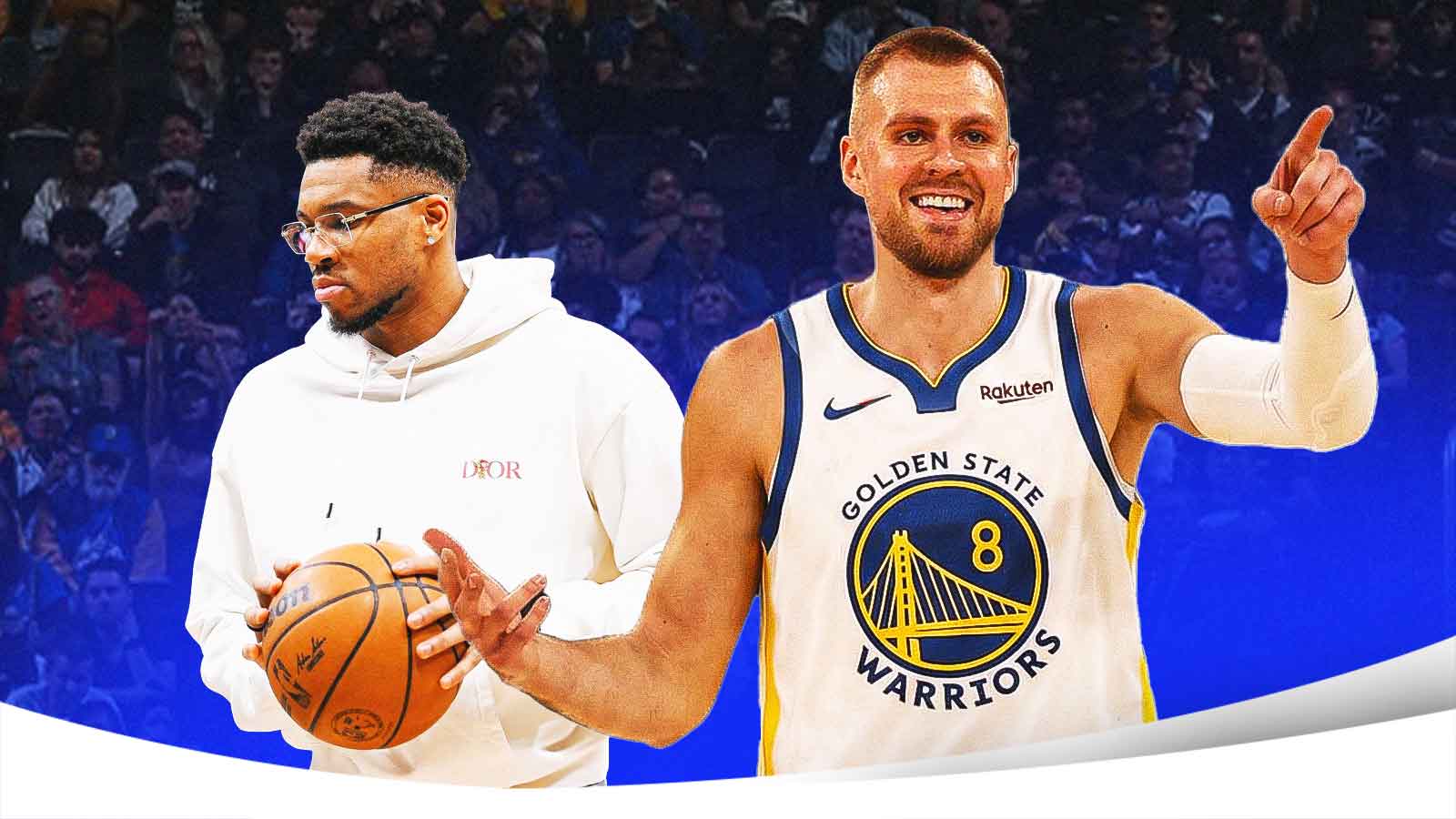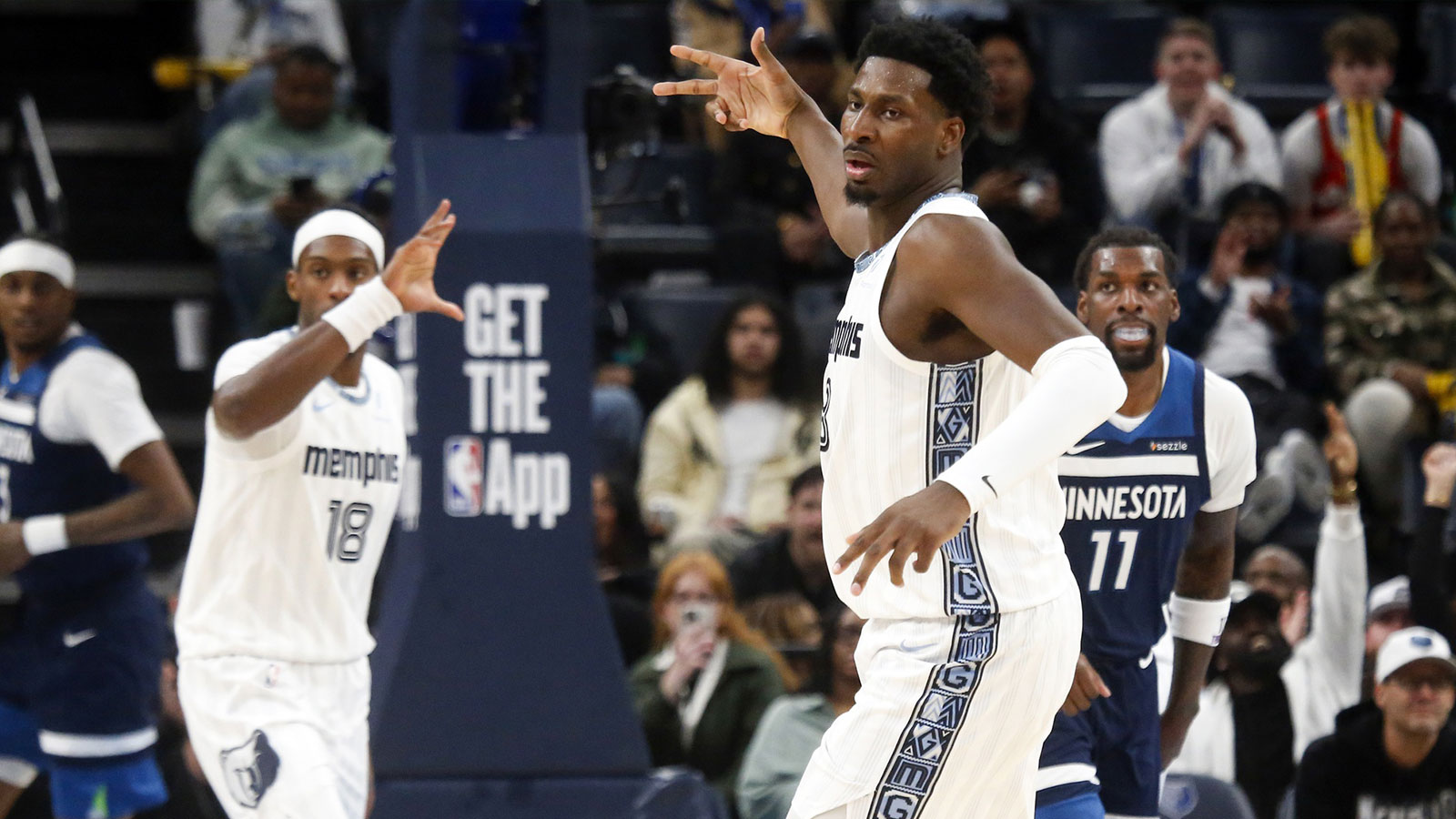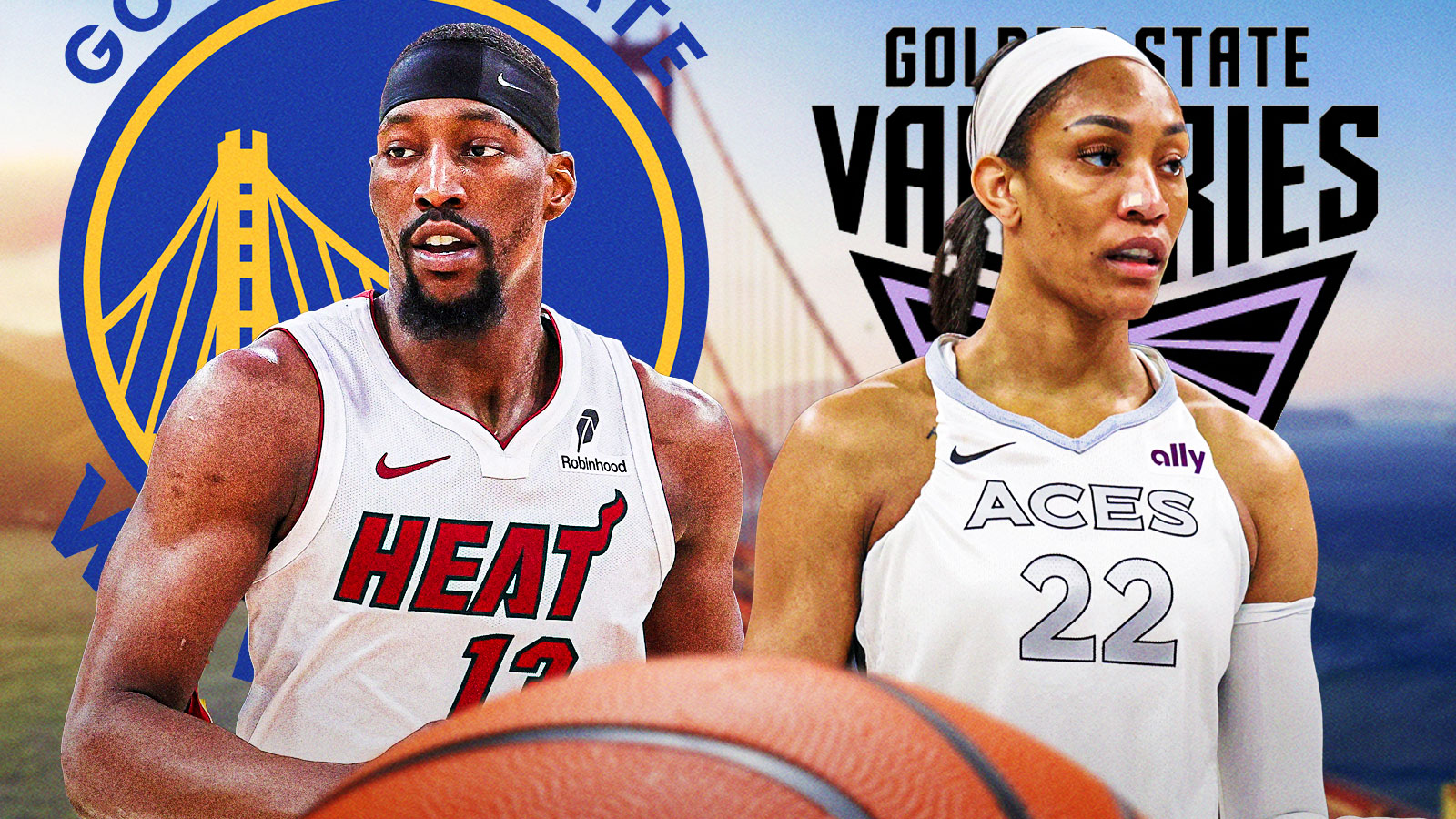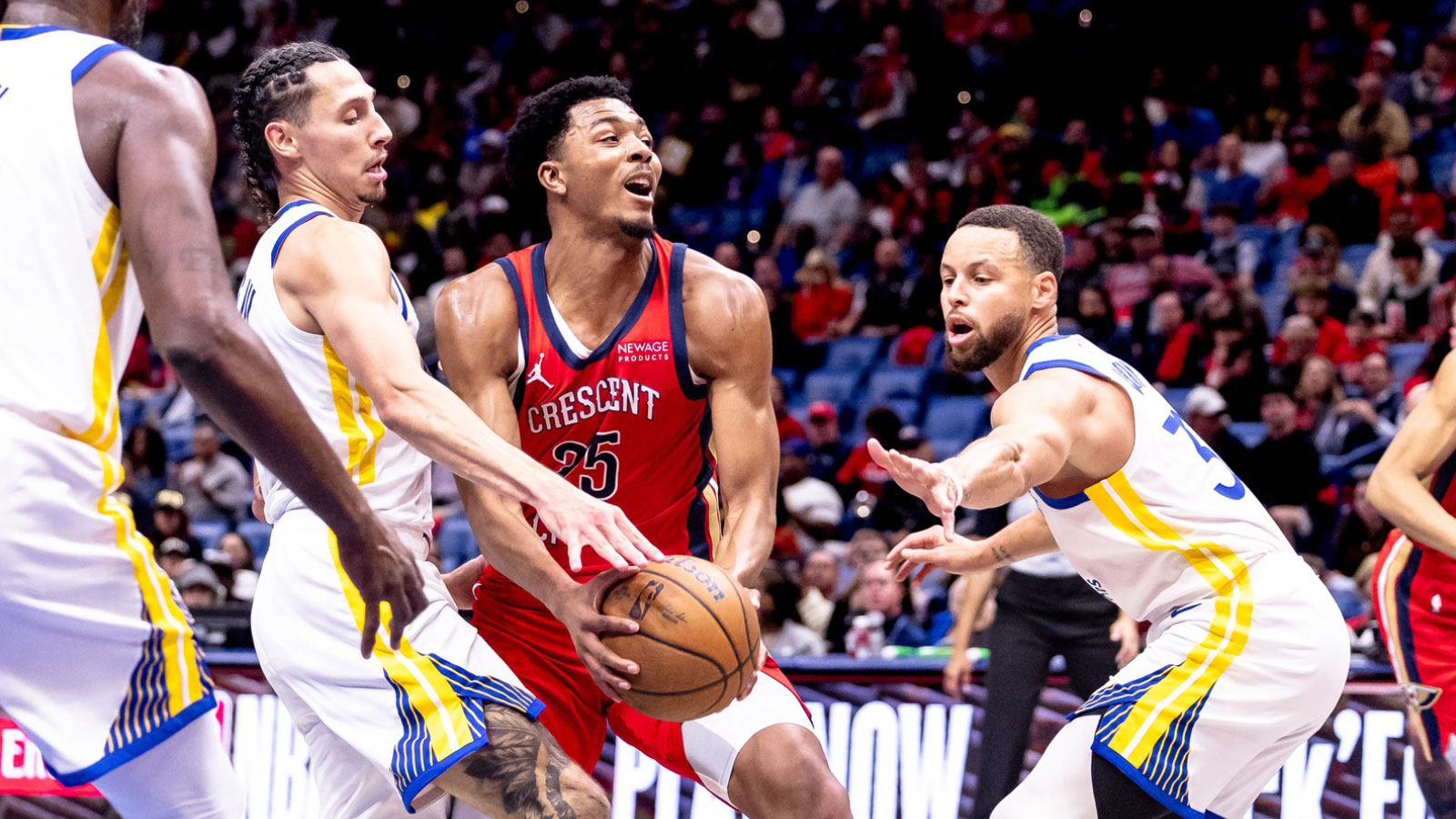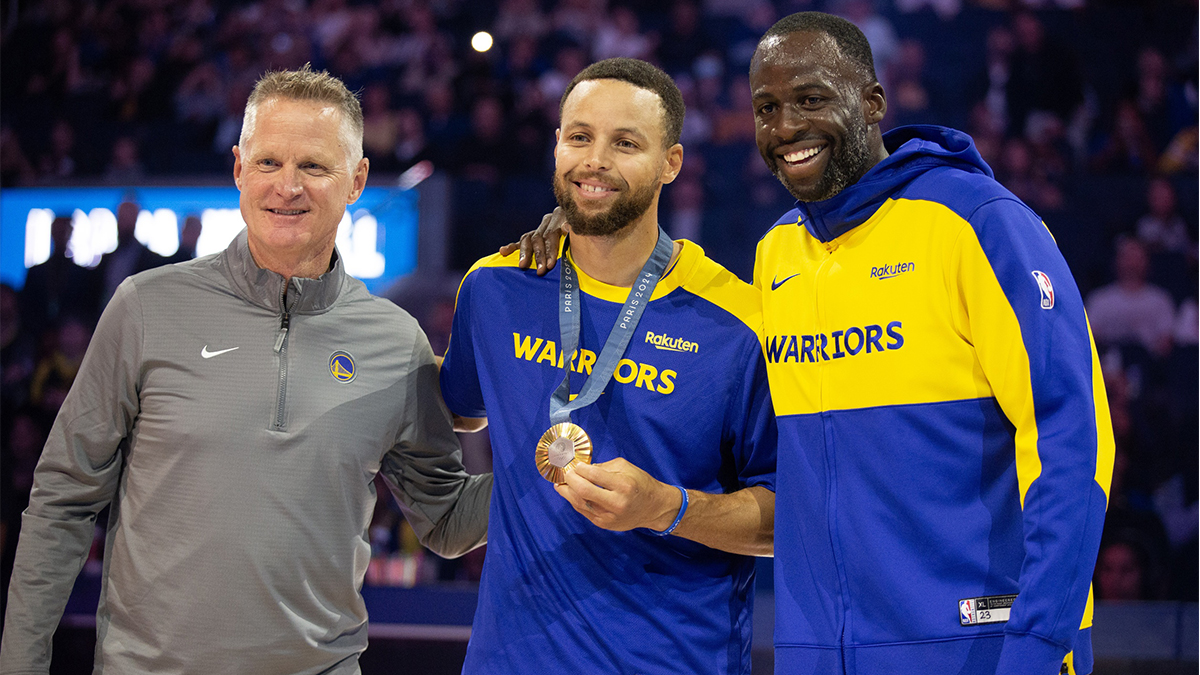The Golden State Warriors crumbled on Wednesday, surrendering a 14-point fourth quarter lead in a 119-114 loss to the Minnesota Timberwolves. Here are three key takeaways from another dispiriting Dubs loss.
Golden State's comedy of late-game errors
The Warriors led 93-82 after three quarters at Target Center, surviving Steph Curry heading to the bench early with foul trouble by outscoring the Timberwolves by two points with the reigning Finals MVP on the bench. All signs pointed to a fourth straight win for Golden State, and a quietly impressive one given how well Minnesota, even short-handed, played in January.
A frustratingly familiar scene played out instead, with the Warriors falling apart late just like they have in so many hard-fought yet winnable games during a disappointing regular season.
D'Angelo Russell was flaming-red hot to open the final stanza, the ever-improving Naz Reid had a few huge buckets and Anthony Edwards closed like a superstar, especially in the extra session. But Golden State lost this game on the other end first and foremost, and not just because Curry and company kept clanking jumper after jumper in stagnant half-court offense once the fourth quarter started.
A bigger issue was the Warriors' sudden rash of unforced turnovers and similarly inexplicable struggles to hang onto the ball.
Curry and Green weren't on the same page several times late, twice basically handing the ball to the officials. Does this look like a pair of Hall-of-Fame teammate who have won four rings together?
Green wasted another possession by failing to corral a defensive rebound despite bringing it into his chest with one arm. At least he had the excuse of Kyle Anderson pulling on his other one, though, preventing Green from getting two hands on the rock.
What's Jordan Poole's here?
Andrew Wiggins saved the Dubs from another turnover just before this possession, making a perfectly timed 45-cut for a dunk as Green got caught in the air after catching on the roll.
His next opportunity for a dunk was much easier, but somehow managed to slip out of his hands.
Golden State is now 13-14 in close games this season, and less importantly but more jarringly, 2-15 in its last 17 overtime contests. Clearly, the Warriors aren't over their crunch-time labors, still searching for answers during winning time.
Andrew Wiggins is (almost) back
The notoriously even-keeled Wiggins proved without a doubt last spring that he actually can flip the switch, emerging as arguably the top role player in basketball while helping the Warriors to a title. But anyone who's closely followed his career knows Wiggins almost always gets up for big games, especially matchups personal to him.
Wiggins' performance against his former team certainly isn't surprising in that respect. Given how listless he's looked on the whole since returning from a month lost to injury and illness in early January, though, his play is probably the Warriors' most encouraging takeaway.
When was the last time Wiggins made plays like this—checked by a bulldog iso defender like Anthony Edwards or relative wallflower like Russell—in the same game?
https://streamable.com/775ov7
Wiggins was that physical as a finisher from the opening tip, with a series of scores over the top of defenders in the paint. He brought that same mindset elsewhere, making the surging Edwards work one-on-one while putting his length and explosiveness to use on the glass.
The Warriors are a much, much different team when Wiggins plays with palpable force and consistently makes multiple efforts. He went just 1-of-4 from three on Wednesday, but was one of the best players on the floor regardless.
Paired with a more subtle year clearly encouraging night from Wiggins in the win over Oklahoma City, it's safe to say he's no longer a step slow—huge for Golden State's hopes of sustaining a second-half run.
The Warriors' ‘traditional five' thrives
Wiggins wasn't on the floor to open the second quarter, vexing given both his two-way verve in the first quarter and longstanding success of Golden State's full-strength second unit. Anthony Lamb was on the floor with Poole, Donte DiVincenzo, Kuminga and Green instead.
Was Wiggins on the bench because he only just got over a pair of illnesses? Maybe to match Anthony Edwards' minutes? Simply due to whims of the coaching staff?
The answer suddenly seemed obvious during the Warriors' game-changing finish to the first half.
Wiggins, Thompson and Kevon Looney came in for Kuminga, Lamb and Green at 7:48 mark of the second quarter. Curry got Poole just over a minute later, then Draymond re-entered for DiVincenzo with 4:34 on the game clock, Golden State up 57-56.
The Warriors' traditional starting five closed the first half on a 14-6, finally creating some separation from the Wolves on the scoreboard courtesy of defense feeding offense and vice versa.
Green came out of nowhere to contest D'Angelo Russell at the rim off a back cut, forcing a miss, then hit a trailing Looney with a bounce pass for a dunk. Looney swiped a steal, leading to Wiggins' baby hook over Naz Reid in secondary transition.
Thompson curled around an off-screen to draw two made free throws. Curry hit that filthy step-back triple over McDaniels. Looney forced Jaylen Nowell and Edwards into tough jumpers on switches. Curry capped the run with another highlight-reel triple just before the first-half buzzer.
Golden State finished with Looney next to the core four against the Oklahoma City Thunder, pulling away in crunch-time with everyone contributing. Maybe Poole remains the starter when this team is fully healthy over the season's remainder. He was on the floor for almost all of crunch-time in Minneapolis, Looney on the bench with the Dubs' offense stuck in mud—and both Rudy Gobert and Karl-Anthony Towns sidelined.
The more court time both units get in the same game, though, the clearer it's becoming which one is more likely to find sustained success in the biggest moments as the season continues. If only Kerr had gone with Golden State's ‘traditional five' late in the game on Wednesday.

